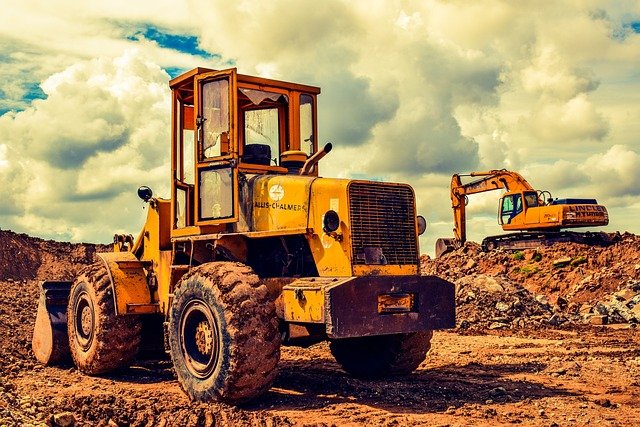Daily Tasks, Safety Protocols, and Communication for Excavator Operators on Construction Sites in Japan in 2025
Curious how excavator operators keep construction sites in Japan safe and efficient? This article outlines their daily duties, rigorous safety protocols, and communication methods used in 2025, helping operators and site managers understand expectations and best practices for on-site overall performance.

Key Daily Responsibilities of Excavator Operators
Excavator operators in Japan play a critical role in earthmoving and site preparation activities that form the backbone of construction projects. Their main tasks typically include:
- Digging Foundations and Trenches: Precision excavation is required to prepare stable bases for structures. Operators maintain exact dig depths and conform to grading specifications to meet engineering requirements.
- Material Handling: Moving soil, debris, and construction materials efficiently across the site.
- Site Preparation: Clearing and leveling the site to facilitate subsequent construction phases.
- Pre-Operation Equipment Checks: Conducting thorough daily inspections of machinery to ensure functionality and safety compliance.
- Documentation: Keeping detailed logs of equipment condition, operational hours, and work progress to support site management and regulatory compliance.
These tasks demand technical expertise, physical fitness, and constant attention to detail to avoid delays or hazards.
Comprehensive Safety Protocols for Excavator Operation
Safety is a top priority on construction sites in Japan, resulting in rigorous protocols operators must follow:
- Mandatory Personal Protective Equipment (PPE): Operators are required to wear hard hats, high-visibility safety vests, steel-toed boots, and weather-appropriate clothing at all times.
- Safety Briefings and Inspections: Each workday begins with safety meetings reviewing site hazards, emergency procedures, and specific operational instructions tailored to the project’s environment.
- Operator Manual Compliance: Operators must read and adhere strictly to safety decals and instructions outlined in the excavator’s operator manual. The manuals emphasize recognizing danger (red alerts), warnings (orange alerts), and cautions (yellow alerts).
- Clear Work Area: Prior to operation, the area must be cleared of unauthorized personnel to prevent accidents.
- Safe Control Practice: Operators must familiarize themselves with controls in a safe environment before starting excavation to minimize operational errors.
- Emergency Response Readiness: Operators are trained to understand hazard indicators and respond appropriately, encompassing both immediate dangers and potential risks.
Following these protocols helps prevent injuries and promotes a secure working environment consistent with Japanese construction safety standards.
Effective Communication on Japanese Construction Sites
Japanese construction sites often include diverse, multilingual teams, making communication essential for safety and coordination:
- Basic Japanese Language Proficiency: Operators are expected to understand fundamental Japanese construction terms to facilitate instructions and safety compliance.
- Standardized Hand Signals: Widely adopted to bridge language gaps, ensuring clear and immediate communication during machine operation.
- Bilingual Signage: Sites post safety signs in both Japanese and other languages to maintain universal awareness of hazards and rules.
- Daily Coordination Meetings: Regular meetings help align team activities, schedule updates, and address any site safety concerns.
- Use of Translators: When language barriers are significant, translators assist to clarify instructions and emergency information, enhancing teamwork and reducing misunderstandings.
Strong communication practices are critical for supporting teamwork and preventing accidents, especially on multicultural sites.
Work Conditions and Scheduling Considerations
In Japan’s construction industry:
- Variable Shifts: Excavator operators may work flexible hours, including weekends or overtime, depending on project demands.
- Weather Adaptation: Operators work through various weather conditions, from heat to cold and rain, using suitable PPE and machines designed for durability.
- Noise Regulation Compliance: Japan enforces strict noise control laws on construction sites to minimize disturbance to nearby communities.
- Mandatory Breaks: Adherence to labor regulations ensures operators receive necessary rest periods to maintain alertness and reduce fatigue.
Understanding these conditions enables operators to manage workload and maintain productivity while safeguarding health.
Professional Qualifications and Training
Operators in Japan typically must:
- Possess a Valid Heavy Equipment Operator License: Demonstrating technical competence.
- Obtain Relevant Safety Certifications: Covering equipment operation and site safety.
- Maintain Physical Fitness: Due to the demanding nature of prolonged machinery operation.
- Develop Basic Japanese Language Skills: To interact effectively with the team and comply with local standards.
- Engage in Continuous Learning: Keeping updated on evolving safety practices and technological enhancements in equipment.
These qualifications contribute to the high professionalism expected on Japanese construction sites.
Documentation and Reporting Responsibilities
Excavator operators are responsible for maintaining accurate and timely records such as:
- Equipment condition logs detailing inspections and maintenance needs.
- Work performance reports describing completed tasks and any operational issues.
- Safety incident reports if accidents or near misses occur.
Proper documentation supports regulatory compliance and facilitates efficient project management.
Embracing Japanese Workplace Culture
Excavator operators must adapt to Japanese workplace norms which emphasize:
- Teamwork and collaboration with various crew members.
- Respect for hierarchical structures and communication protocols.
- A commitment to ongoing improvement in skills and safety awareness.
This cultural alignment enables operators to integrate smoothly and operate effectively within their teams.
In summary, excavator operators in Japan in 2025 manage complex daily tasks with a stringent safety-first mindset and clear communication strategies. Meeting professional requirements, adapting to work conditions, and collaborating within diverse teams ensure safe and productive construction operations across the country.
Sources
- Link-Belt Excavator Operator’s Manual (2025).
- Yokota Air Base Civil Engineering Squadron Vacancy Announcement (2025).
- Industry insights on Excavator Operator duties and safety protocols in Japan (2025).
Disclaimer: This article provides general information on excavator operator duties, safety protocols, and communication practices in Japan. Specific job requirements, safety standards, and working conditions may vary by employer, project, and region. Readers should verify details with local authorities or employers for current and applicable regulations.




